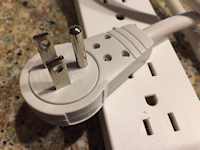
 Electrical engineers design, develop, test, and supervise the manufacture of electrical equipment, such as electric motors, radar and navigation systems, communications systems, or power generation equipment. Electrical engineers also design the electrical systems of automobiles and aircraft. Electronics engineers design and develop electronic equipment, including broadcast and communications systems, such as portable music players and Global Positioning System (GPS) devices. Many also work in areas closely related to computer hardware. Electrical engineers design, develop, test, and supervise the manufacture of electrical equipment, such as electric motors, radar and navigation systems, communications systems, or power generation equipment. Electrical engineers also design the electrical systems of automobiles and aircraft. Electronics engineers design and develop electronic equipment, including broadcast and communications systems, such as portable music players and Global Positioning System (GPS) devices. Many also work in areas closely related to computer hardware.
The work of electrical engineers and electronics engineers is often similar. Both use engineering and design software and equipment to do engineering tasks. Both types of engineers also must work with other engineers to discuss existing products and possibilities for engineering projects.
Electrical engineers typically do the following:
- Design new ways to use electrical power to develop or improve products
- Perform detailed calculations to develop manufacturing, construction, and installation standards and specifications
- Direct the manufacture, installation, and testing of electrical equipment to ensure that products meet specifications and codes
- Investigate complaints from customers or the public, evaluate problems, and recommend solutions
- Work with project managers on production efforts to ensure that projects are completed satisfactorily, on time, and within budget
Electronics engineers typically do the following:
- Design electronic components, software, products, or systems for commercial, industrial, medical, military, or scientific applications
- Analyze customer needs and determine the requirements, capacity, and cost for developing an electrical system plan
- Develop maintenance and testing procedures for electronic components and equipment
- Evaluate systems and recommend design modifications or equipment repair
- Inspect electronic equipment, instruments, and systems to make sure they meet safety standards and applicable regulations
- Plan and develop applications and modifications for electronic properties used in parts and systems in order to improve technical performance
.
Note: Some resources in this section are provided by
IEEE and the US Department
of Labor, Bureau of Labor Statistics.
|
|